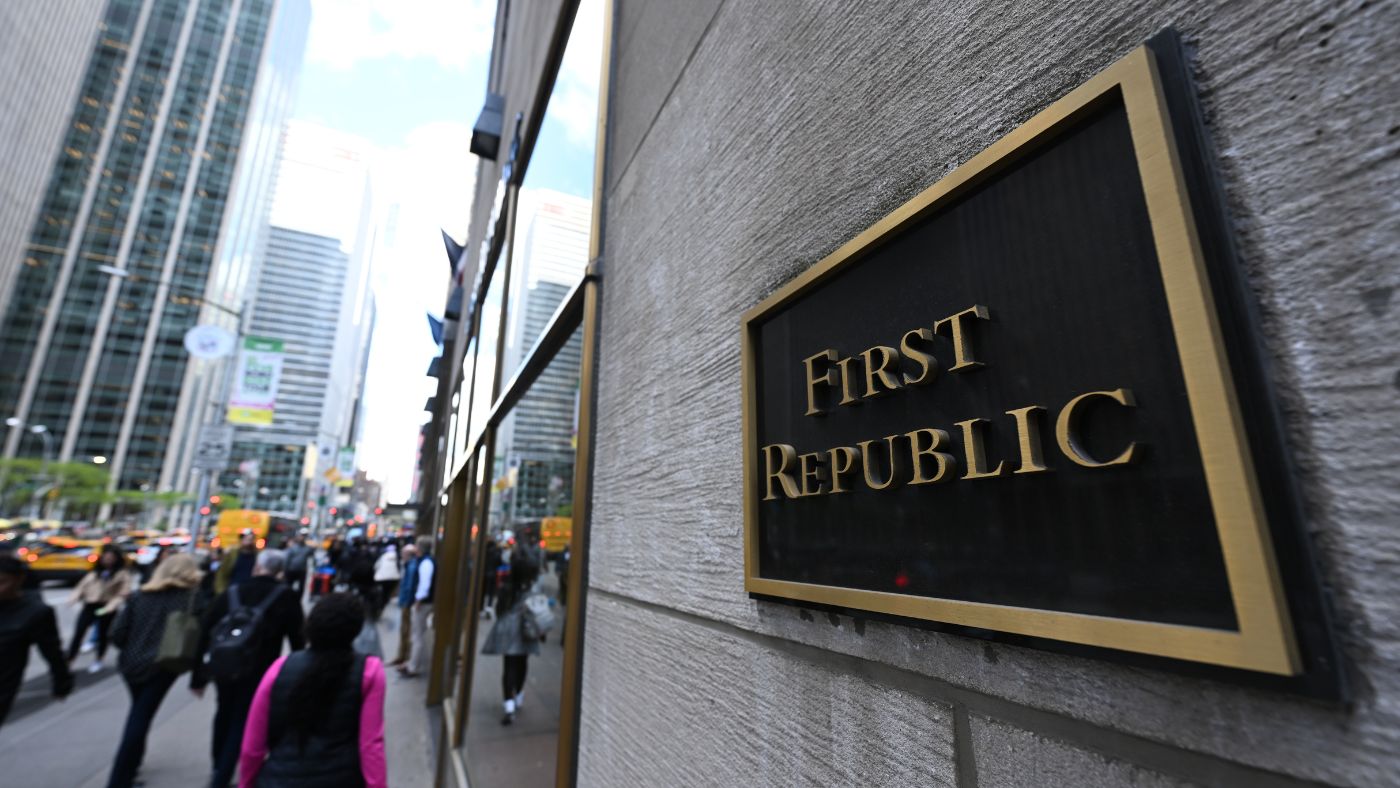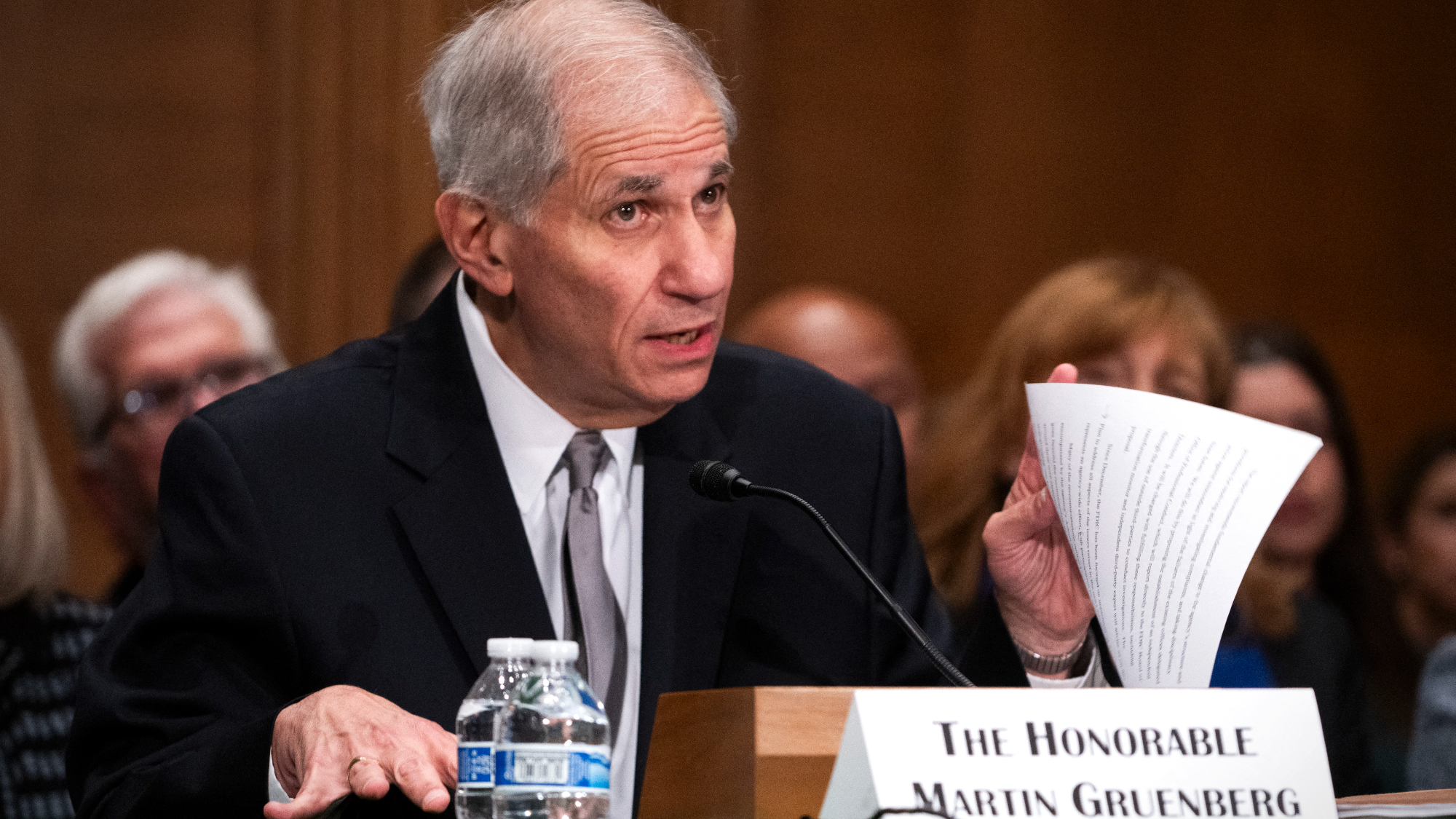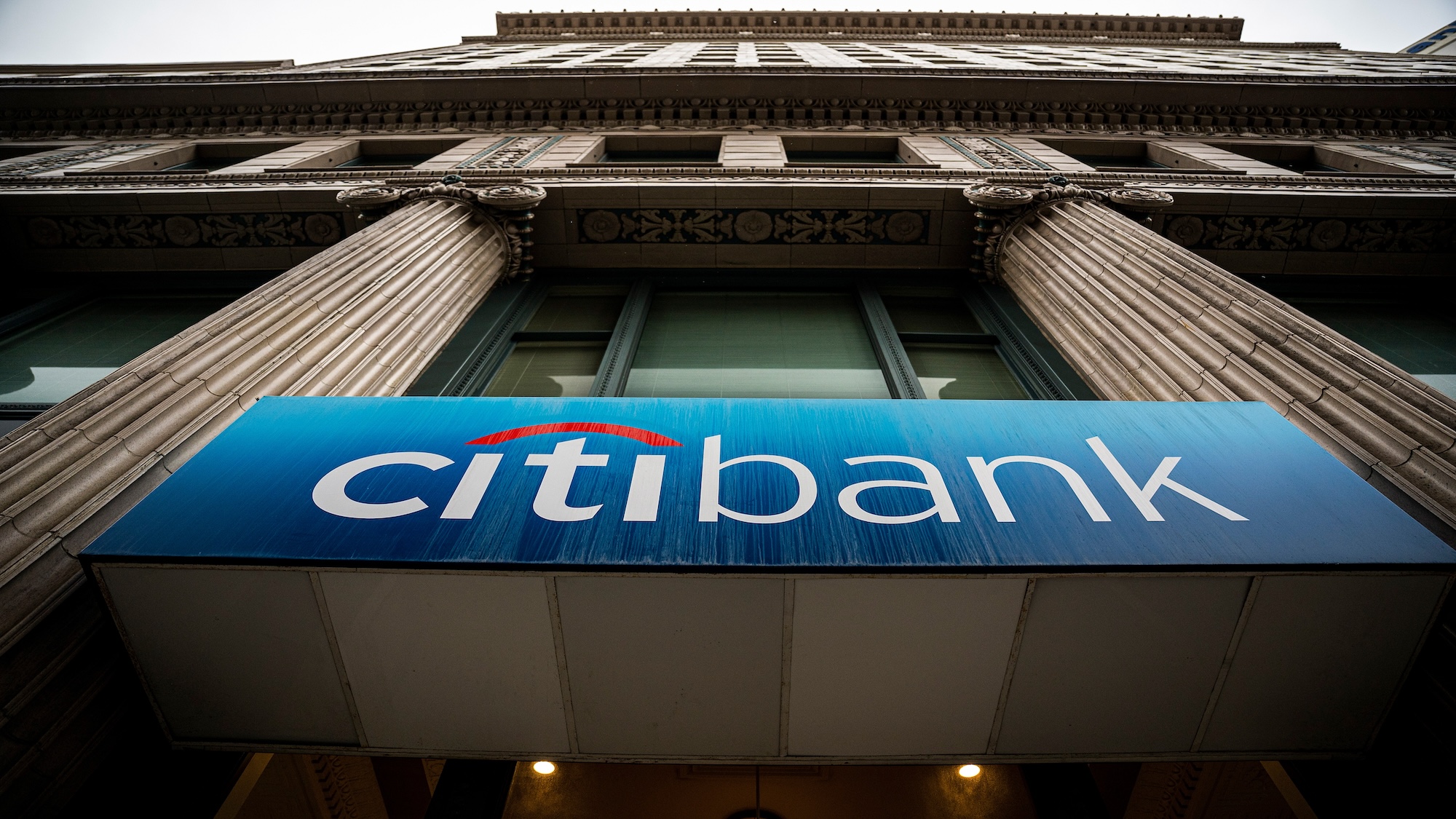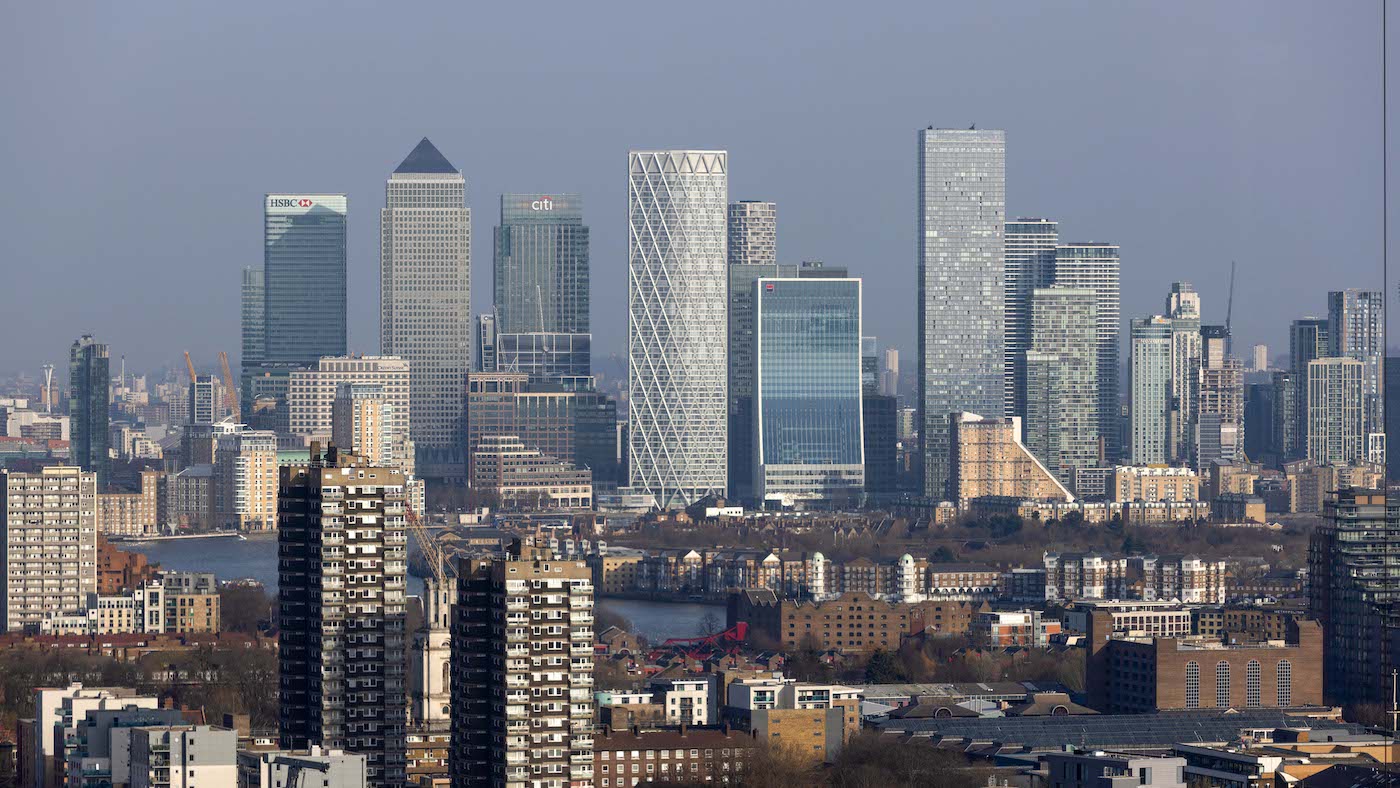First Republic: will UK banks survive unscathed?
US shares dip after collapse of third regional bank, but experts say contagion to the UK is unlikely

A free daily email with the biggest news stories of the day – and the best features from TheWeek.com
You are now subscribed
Your newsletter sign-up was successful
The Treasury has sought to reassure the public that the British banking system is safe after First Republic became the third major US bank to fail in two months.
“As the independent Bank of England has confirmed, the UK banking system remains safe, sound and well capitalised,” a spokesperson for the Treasury told Reuters.
The official added that First Republic was “a matter for US authorities”.
The Week
Escape your echo chamber. Get the facts behind the news, plus analysis from multiple perspectives.

Sign up for The Week's Free Newsletters
From our morning news briefing to a weekly Good News Newsletter, get the best of The Week delivered directly to your inbox.
From our morning news briefing to a weekly Good News Newsletter, get the best of The Week delivered directly to your inbox.
‘Emergency measures’
After its collapse on Monday, First Republic was taken over by US federal authorities. The “substantial majority” of its assets were then swiftly sold to JP Morgan, including $173bn (£138bn) of loans.
The bank’s collapse “follows the failures of US lenders Silicon Valley Bank and Signature Bank after investors withdrew funds”, Sky News said.
The US central bank, the Federal Reserve, has been forced to “step in with emergency measures”, the broadcaster added, in a bid to “stabilise the markets to prevent more funds being withdrawn amid growing fears of a new wider banking crisis”.
‘Confidence crisis’
The rescue of First Republic has “failed to calm market fears about the integrity of the United States banking system,” said Al Jazeera, with “regional bank shares plummeting for a second straight day”.
A free daily email with the biggest news stories of the day – and the best features from TheWeek.com
PacWest Bancorp, based in Los Angeles, saw its share price plunge by nearly 30%, while Western Alliance Bank and KeyCorp fell by 21% and 10%, respectively, said the news site.
Bigger banks, including Citigroup and Bank of America, also saw losses, but not nearly as steep as their mid-sized counterparts.
“If a ‘confidence crisis’ can happen to First Republic, it can happen to any bank in this country,” Jake Dollarhide, chief executive of Longbow Asset Management, told Reuters. “This is potentially a big deal, which hopefully won’t materialise to anything significant.”
‘A delayed reaction not a new phrase’
Some traders believe that following the collapse of First Republic, “other banks could also now be in trouble”, said This Is Money, though many say that this is “not a ‘Lehman’s moment’”.
First Republic’s issues were most likely a “delayed reaction to the turmoil in March rather than the opening of a new phase in the crisis”, the financial website added.
Jamie Dimon, the boss of JP Morgan, sought to calm concerns about a spiralling banking crisis after its hurried takeover of First Republic.
He “played down any other similarities with the 2008 crash, which triggered the start of an international financial crisis that plunged the global economy into recession”, The Guardian said.
Dimon described the US banking system as “extraordinarily sound”, and said that JP Morgan’s takeover meant the sector was “getting near the end” of the spate of bank collapses and would “hopefully help stabilise everything”.
HSBC’s chief executive Noel Quinn also sought to calm concerns about the health of the global banking system “We’re pleased that there was a resolution on First Republic at the weekend so that that situation has been resolved,” The Telegraph quoted him as saying. “We do not believe there is a global banking crisis on the horizon. We think there are some challenges that have been evidenced in some of the regional banks in the US, but we do not believe that’s systemic in the US, or across all banks.”
Discussing the possibility of contagion to the UK banking sector, LBC’s David Buik was equally confident. “Stress tests are regular occurrences and exacting,” the financial commentator said. “Many would be surprised to see a banking crisis in the UK barring an act of God!”
Arion McNicoll is a freelance writer at The Week Digital and was previously the UK website’s editor. He has also held senior editorial roles at CNN, The Times and The Sunday Times. Along with his writing work, he co-hosts “Today in History with The Retrospectors”, Rethink Audio’s flagship daily podcast, and is a regular panellist (and occasional stand-in host) on “The Week Unwrapped”. He is also a judge for The Publisher Podcast Awards.
-
 6 of the world’s most accessible destinations
6 of the world’s most accessible destinationsThe Week Recommends Experience all of Berlin, Singapore and Sydney
-
 How the FCC’s ‘equal time’ rule works
How the FCC’s ‘equal time’ rule worksIn the Spotlight The law is at the heart of the Colbert-CBS conflict
-
 What is the endgame in the DHS shutdown?
What is the endgame in the DHS shutdown?Today’s Big Question Democrats want to rein in ICE’s immigration crackdown
-
 What does the FDIC do?
What does the FDIC do?In the Spotlight The Federal Deposit Insurance Corporation is now a 'Trump target'
-
 TD Bank accepts $3B fine over money laundering
TD Bank accepts $3B fine over money launderingSpeed Read The US retail bank pleaded guilty to multiple criminal charges
-
 FDIC chair out after toxic work culture report
FDIC chair out after toxic work culture reportSpeed Read The report revealed a trend of sexual harassment and discrimination at the Federal Deposit Insurance Corporation
-
 Citibank to cut off online access for customers who don't go paperless
Citibank to cut off online access for customers who don't go paperlessSpeed Read The bank will shut off the customer's access to both their online website and mobile app
-
 The jobs most and least at risk of being replaced by AI
The jobs most and least at risk of being replaced by AIUnder the Radar AI could affect roughly 300 million full-time jobs if it reaches its full potential
-
 What’s happening at McDonald’s?
What’s happening at McDonald’s?Under the Radar Fast-food chain closed US offices and told staff to work from home while it announces job cuts
-
 Banking crisis: has the city weathered the financial storm?
Banking crisis: has the city weathered the financial storm?Talking Point The financial storm appears to have abated, but no one’s ruling out more squalls along the way
-
 Should the UK relax bank ring-fencing rules?
Should the UK relax bank ring-fencing rules?Talking Point Treasury minister said he hopes to ‘boost competitiveness’ in the City with easing of regulations